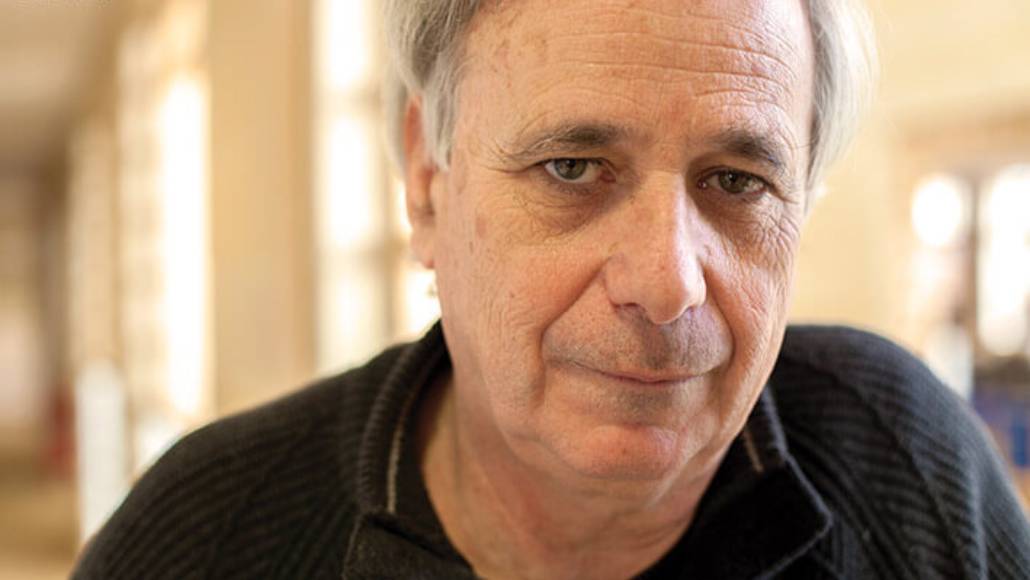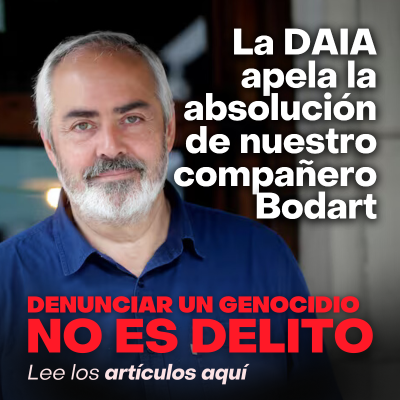Por Ilan Pappe
- originalmente publicado en The Palestine Chonicle
Es un desafío mantener la brújula moral cuando la sociedad a la que pertenece (tanto sus líderes como sus medios de comunicación) asume la autoridad moral y espera que compartas con ellos la misma furia justa con la que reaccionaron ante los acontecimientos del pasado sábado 7 de octubre.
Sólo hay una manera de resistir la tentación de unirnos a ello: si usted entendiera, en algún momento de su vida –incluso como ciudadano judío de Israel– la naturaleza colonial del sionismo y se sintiera horrorizado por sus políticas contra los pueblos indígenas de Palestina.
Si se ha dado cuenta de eso, no vacilará, incluso si los mensajes venenosos describen a los palestinos como animales o «animales humanos». Esas mismas personas insisten en describir lo que ocurrió el sábado pasado como un «Holocausto», abusando así de la memoria de una gran tragedia. Estos sentimientos están siendo transmitidos, día y noche, tanto por los medios de comunicación como por los políticos israelíes.
Es esta brújula moral la que me llevó a mí, y a otros en nuestra sociedad, a apoyar al pueblo palestino en todas las formas posibles; y eso nos permite, al mismo tiempo, admirar la valentía de los combatientes palestinos que tomaron una docena de bases militares, superando al ejército más fuerte de Medio Oriente.
Además, personas como yo no podemos evitar plantear preguntas sobre el valor moral o estratégico de algunas de las acciones que acompañaron esta operación.
Como siempre apoyamos la descolonización de Palestina, sabíamos que cuanto más durara la opresión israelí, menos probable sería que la lucha de liberación fuera “estéril” – como ha sido el caso en todas las luchas justas por la liberación en el pasado, en cualquier parte del mundo.
Esto no significa que no debamos estar atentos al panorama general, ni siquiera por un minuto. La imagen es la de un pueblo colonizado que lucha por sobrevivir, en un momento en que sus opresores habían elegido un gobierno, que está empeñado en acelerar la destrucción, de hecho, la eliminación del pueblo palestino –o incluso de su propio reclamo de ser un pueblo.
Hamás tuvo que actuar, y rápidamente.
Es difícil expresar estos contraargumentos porque los medios y políticos occidentales han acompañado el discurso y la narrativa israelí, por más problemática que fuera.
Me pregunto cuántos de los que decidieron vestir el Parlamento de Londres y la Torre Eiffel de París con los colores de la bandera israelí entienden realmente cómo se recibe este gesto aparentemente simbólico en Israel.
Incluso los sionistas liberales, con un mínimo de decencia, interpretan este acto como una absolución total de todos los crímenes que los israelíes han cometido contra el pueblo palestino desde 1948; y por tanto, como carta blanca para continuar con el genocidio que ahora perpetra Israel contra el pueblo de Gaza.
Afortunadamente, también hubo diferentes reacciones ante los acontecimientos ocurridos en los últimos días.
Como en el pasado, grandes sectores de la sociedad civil occidental no se dejan engañar fácilmente por esta hipocresía, que ya se manifiesta plenamente en el caso de Ucrania.
Mucha gente sabe que desde junio de 1967, un millón de palestinos han sido encarcelados al menos una vez en su vida. Y con el encarcelamiento vienen los abusos, la tortura y la detención permanente sin juicio.
Estas mismas personas también conocen la horrible realidad que Israel había creado en la Franja de Gaza cuando selló la región, imponiendo un asedio hermético, a partir de 2007, acompañado por la matanza implacable de niños en la Cisjordania ocupada. Esta violencia no es un fenómeno nuevo, ya que ha sido la cara permanente del sionismo desde el establecimiento de Israel en 1948.
Debido a esa misma sociedad civil, mis queridos amigos israelíes, en última instancia se demostrará que su gobierno y sus medios de comunicación están equivocados, ya que no podrán reivindicar el papel de víctimas, recibir apoyo incondicional y salirse con la suya.
Con el tiempo, emergerá el panorama general, a pesar de los medios occidentales inherentemente sesgados.
La gran pregunta, sin embargo, es la siguiente: ¿podrán ustedes, mis amigos israelíes, ver claramente también este mismo panorama general? ¿A pesar de años de adoctrinamiento e ingeniería social?
Y no menos importante: ¿podrán aprender la otra lección importante –que se puede extraer de los acontecimientos recientes– de que la fuerza por sí sola no puede encontrar el equilibrio entre un régimen justo, por un lado, y un proyecto político inmoral, por el otro?
Pero hay una alternativa. De hecho, siempre ha habido una:
Una Palestina desionizada, liberada y democrática desde el río hasta el mar; una Palestina que dé la bienvenida a los refugiados y construya una sociedad que no discrimine por motivos de cultura, religión o etnia.
Este nuevo Estado trabajaría para rectificar, en la medida de lo posible, los males del pasado, en términos de desigualdad económica, robo de propiedad y negación de derechos. Esto podría presagiar un nuevo amanecer para todo Oriente Medio.
No siempre es fácil atenerse a la brújula moral, pero si apunta hacia el norte –hacia la descolonización y la liberación–, lo más probable es que lo guíe a través de la niebla de la propaganda venenosa, las políticas hipócritas y la inhumanidad, a menudo perpetrada en nombre de «nuestros valores occidentales comunes».
– Ilan Pappé es profesor de la Universidad de Exeter. Anteriormente fue profesor titular de ciencias políticas en la Universidad de Haifa. Es autor de La limpieza étnica de Palestina, El Medio Oriente moderno, Una historia de la Palestina moderna: una tierra, dos pueblos y diez mitos sobre Israel. Pappé es descrito como uno de los “nuevos historiadores” de Israel que, desde la publicación de los documentos pertinentes de los gobiernos británico e israelí a principios de la década de 1980, ha estado reescribiendo la historia de la creación de Israel en 1948.





